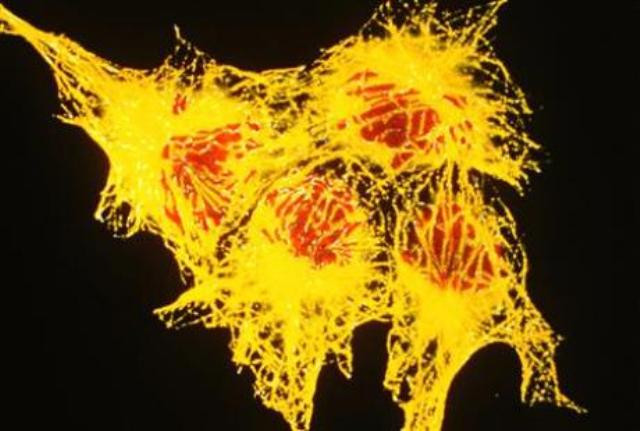New cancer treatment boosts morale of terminally ill patients
The trial study utilised white blood cells from patients with leukaemia to come up with a treatment for cancer

The trial study utilised white blood cells from patients with leukaemia to come up with a treatment for cancer. PHOTO: REUTERS
The trial study utilised white blood cells from patients with leukaemia to come up with a treatment for cancer.
However, the data has not yet been published or reviewed and has also claimed the lives of two patients due to an extreme immune response.
According to experts, the trial was exciting but still only a baby step in the battle against cancer.
Pakistani scientist develops device to diagnose cancer rapidly
Professor Stanley Riddell, the lead scientist at Fred Hutchinson Cancer Research Centre in Seattle, said the patients had no other treatments left to avail and they only had two to five months left to live.
In the trial, killer t-cells from the immune system were taken out from patients. These cells usually destroy infected tissue.
The t-cells were then genetically modified by researchers to target acute lymphoblastic leukaemia.
SIUT to open cancer hospital in Sukkur
In an interview with the BBC, Professor Riddell said the process reprogrammes t-cells to target patient’s tumour cells.
“Essentially what this process does is it genetically reprogrammes the T-cell to seek out, recognise and destroy the patient's tumour cells,” he told the BBC.
“[The patients] were really at the end of the line in terms of treatment options and yet a single dose of this therapy put more than 90% of these patients in complete remission where we can't detect any of these leukaemia cells,” he added.
However, the side-effects of this new treatment are greater than conventional leukaemia treatments such as chemotherapy and radiotherapy, which work on majority of patients.
World Cancer Day: 90% cancers curable if diagnosed in time: expert
Also, there is a big difference between using such approaches on a blood cancer like leukaemia and "solid" tumours such as breast cancer.
Dr Alan Worsley, from Cancer Research UK, said that while the field was exciting it is only a baby step.
“We've been working for a while using this type of technology, genetically engineering cells. So far it's really shown some promise in this type of blood cancer,” Dr Worsley said.
“The real challenge now is how do we get this to work for other cancers, how do we get it to work for what's known as solid cancers, cancers in the tissue?”



















COMMENTS
Comments are moderated and generally will be posted if they are on-topic and not abusive.
For more information, please see our Comments FAQ